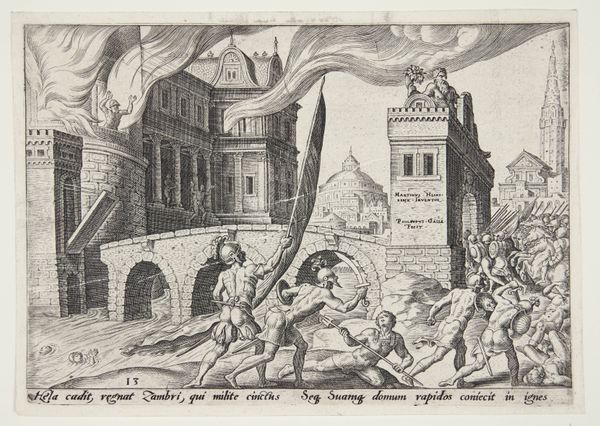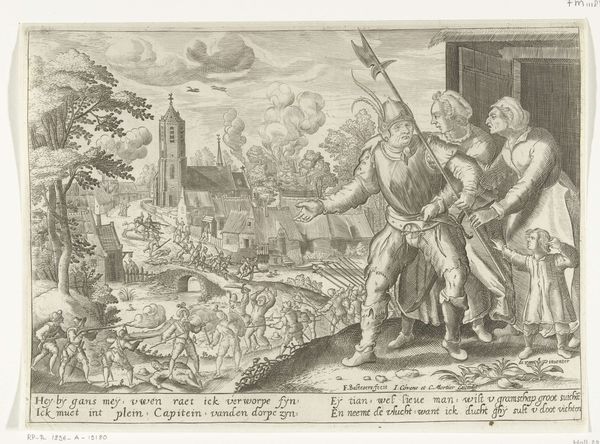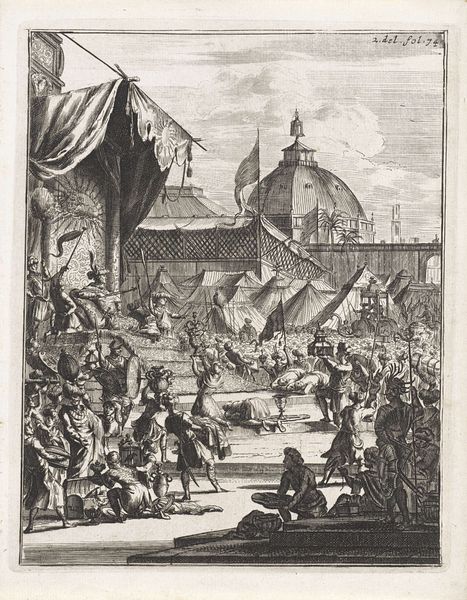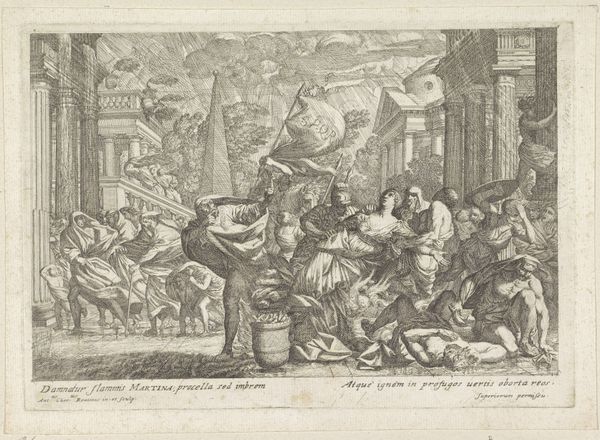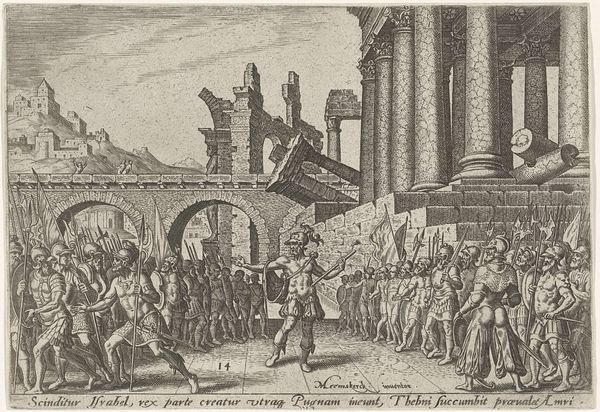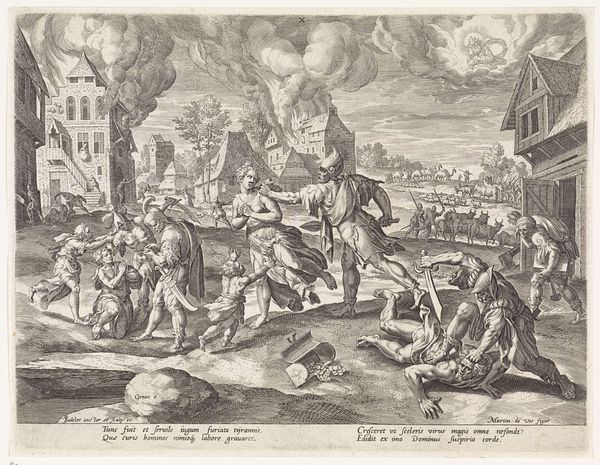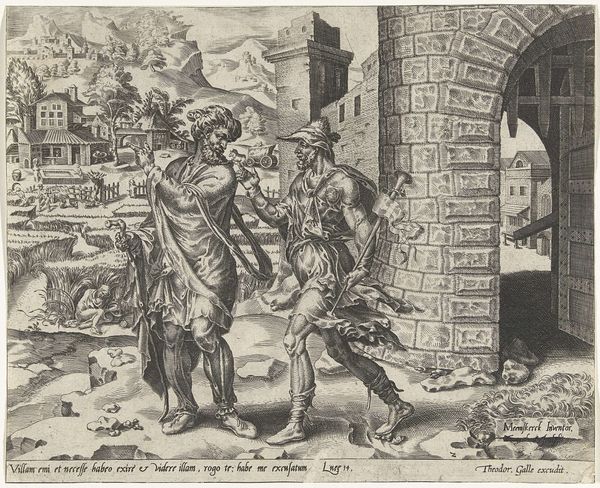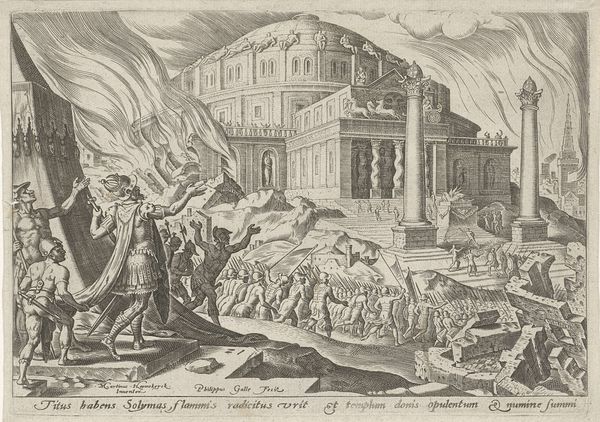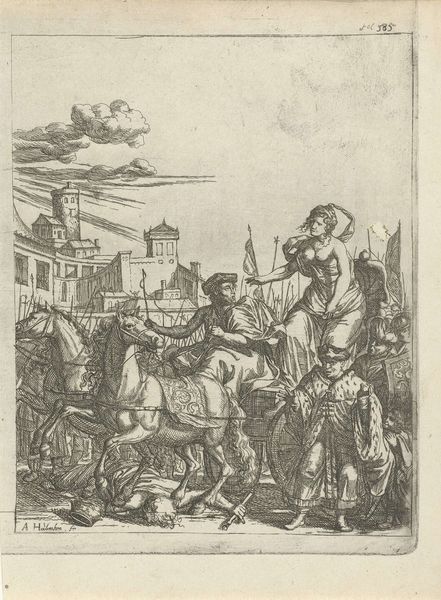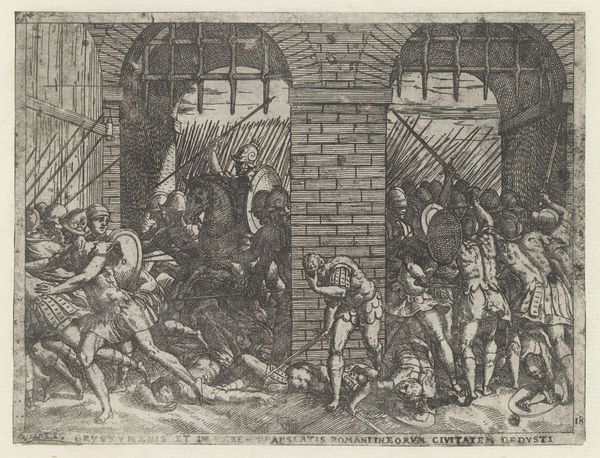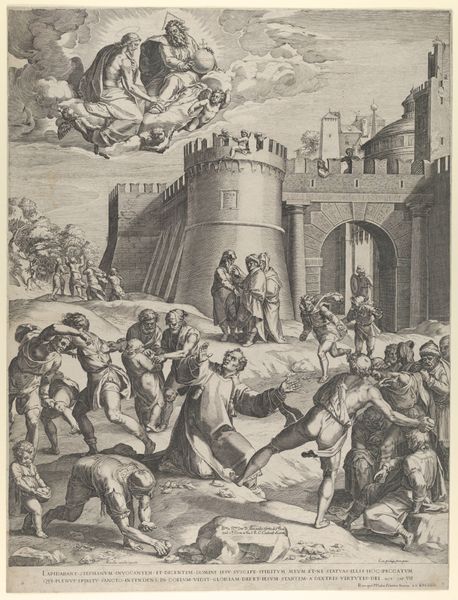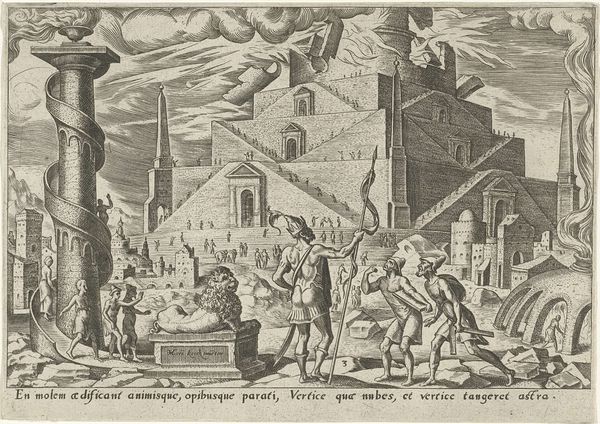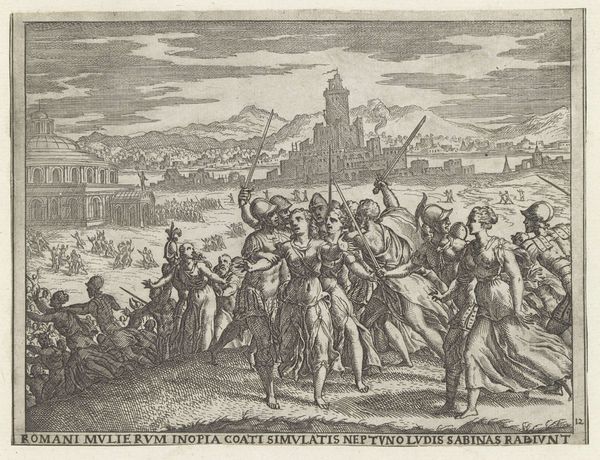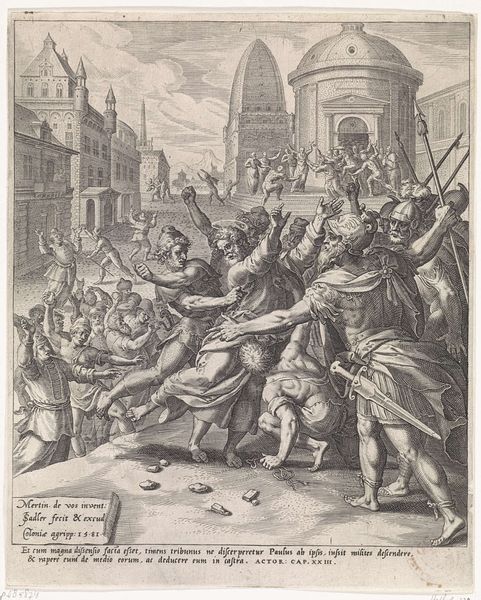
Dimensions: height 141 mm, width 202 mm
Copyright: Rijks Museum: Open Domain
Philips Galle created this engraving, "De inname van Tirza," sometime between 1537 and 1612, now held in the Rijksmuseum. Notice how the scene's dramatic intensity is enhanced by the stark contrast of light and shadow, a hallmark of engraving. The composition is structured around opposing forces: the besieged city on the left, engulfed in flames, and the advancing army on the right. Galle uses architectural elements, such as the bridge and the city's walls, to create a sense of depth and to divide the space. This division emphasizes the conflict. The figures, rendered with detailed musculature, are caught in dynamic poses, heightening the narrative's tension. Semiotically, fire can be read as a signifier of destruction and transformation, while the soldiers represent the imposition of new power structures. Ultimately, the engraving’s formal arrangement—its balance of light, shadow, and spatial organization—mirrors the thematic content of conquest and upheaval, inviting contemplation about the nature of power and the transience of human endeavors.
Comments
No comments
Be the first to comment and join the conversation on the ultimate creative platform.
